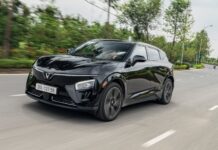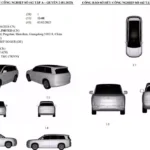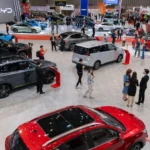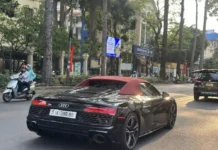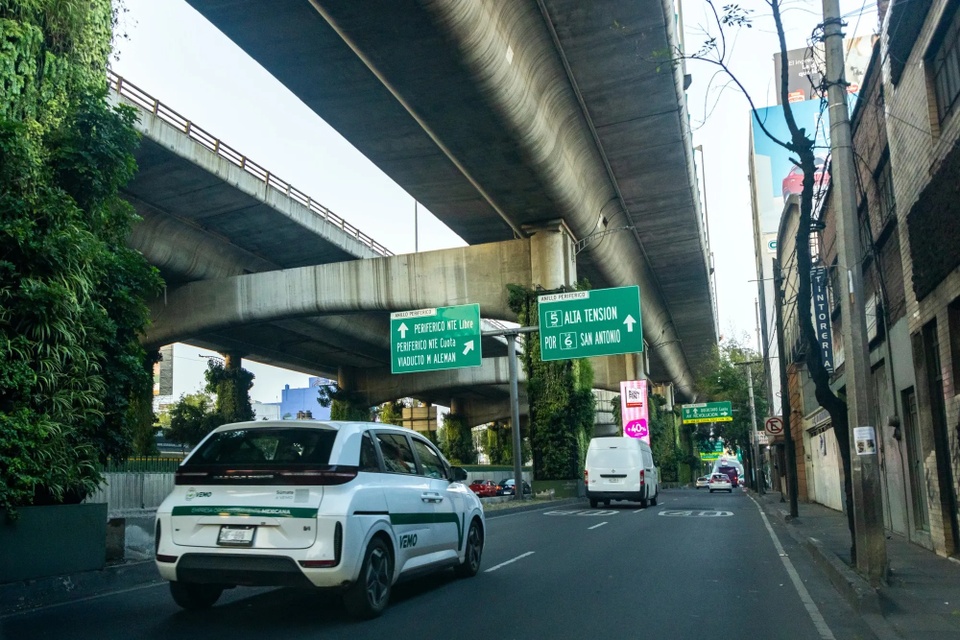
|
According to Bangkok Post, the rising popularity of Chinese-branded SUVs and pickup trucks is shaking up the luxury car market in Mexico. The sales of once-dominant luxury car brands in the country, such as Mercedes-Benz and BMW, have been impacted.
The Bangkok Post commented that in a country hosting many factories of foreign brands such as BMW and Audi, the preference for Chinese automobiles is considered a remarkable feat.
A few years ago, imported Chinese vehicles were not warmly welcomed in Mexico, similar to the situation in many other markets globally.
Data from the Mexican Automobile Distributors Association (AMDA) revealed that the luxury car segment in the North American country experienced an 8.1% decline in sales during the first 11 months of the year.
Audi’s sales dropped by 21.9%, Mercedes-Benz’s sales decreased by 9.8%, and BMW’s sales, including MINI, remained stagnant in the country with the second-largest economy in Latin America.
In contrast, Motornation, the distributor in Mexico for Chinese automakers BAIC, JMC, and Changan, reported an 8.8% sales increase for these brands during the same 11-month period. Jetour’s sales, in particular, soared by 131% compared to the previous year.
Industry experts attribute this shift to Mexican customers’ growing preference for Chinese SUVs and pickups over luxury sedans, mainly due to factors such as equipment, technology, and pricing.
AMDA data shows that Chinese automakers now hold a 9.3% market share in Mexico’s automobile market.
|
|
Guillermo Rosales, President of AMDA, shared with AFP that Chinese automakers have brought competition to the pickup segment, offering features typically found in high-end vehicles from luxury brands.
Asian automakers have also benefited from Mexico’s import tax exemption for electric vehicles, which took effect in 2020 and ended on October 1, 2023.
Miguel Reyes, a 71-year-old retired employee in Mexico, said that choosing a Chinese car over other brands was a “simple logic” decision.
“I needed a car with the necessary technologies to make driving safer,” Miguel Reyes stated.
Competitive pricing is another crucial factor. Mr. Reyes shared that he paid 550,000 pesos (approximately 27,000 USD) for his current vehicle, while a similar model from traditional luxury brands would have cost between 40,000 and 50,000 USD.
Data analyst Gerardo Gomez from J.D. Power mentioned that there are currently about 30 Chinese automakers in Mexico, offering a diverse range of options from small cars to luxurious vehicles.
For instance, BYD’s pickup truck is priced at nearly 970,000 pesos (around 47,600 USD), but the company also has a compact model priced at approximately 7,000 USD. Electric vehicle manufacturer Zeekr is introducing its products in Mexico with price tags equivalent to about 40,000 USD.
|
|
This shift in market share towards Chinese automobiles occurs amidst US President-elect Donald Trump’s indications that Chinese automakers are building factories in Mexico to export to the US.
Canadian officials have also accused Mexico of becoming a platform for Chinese products to access the North American market, a claim denied by the Mexican government.
Mexican President Claudia Sheinbaum asserted that only 7% of auto parts produced in the country belong to Chinese companies.
Recently, Mr. Trump threatened to impose a 25% import tax on goods from both Mexico and Canada unless the neighboring countries take action to stop the flow of illegal immigrants.
Recommended Reads for Your Journey
Our Automotive section offers a diverse range of book suggestions to engage your mind during your travels. Whether you’re embarking on a road trip or commuting to work, these titles are sure to enrich your journey and provide food for thought.



